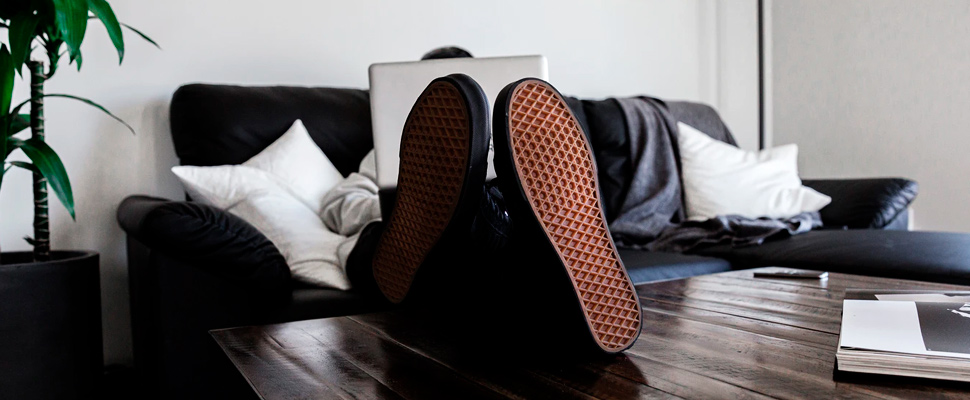The work situation is changing due to the coronavirus. Here we give you some tips so you can learn how to work from home effectively.

Follow these tips to get good results when working from home. / Photo: Unsplash
LatinAmerican Post | Ariel Cipolla
Listen to this article
Leer en español: 5 consejos para comenzar a trabajar desde casa cómodamente
The coronavirus is scaring everyone. Because the risk of contagion should be minimized, any type of place where a large number of people can be present should be avoided. One of them is work, so the paradigm begins to change little by little.
Due to risk prevention measures, many office jobs are implementing home-office work arrangements for their employees , all thanks to the advancement of technology. An example is Twitter, which, according to the newspaper El Cronista, has its almost 5,000 employees around the world fulfilling their obligations at home.
Knowing that some protocols for preventing the spread of this virus often create these types of changes, we decided to compile the 5 best tips for you to learn how to work from home. You will see that there are a lot of benefits that you did not imagine!
5. Don't work from bed
It may seem silly, but the first thing we think about when starting our job from home is that we can work from bed, something that a priori sounds like an excellent idea, due to comfort. Although this is technically possible, it is not recommended, since you will be associating the bed, which is a place of rest, with the place where you do your obligations.
Also read: Coronavirus, a global balance
Therefore, your whole day will seem terribly monotonous. Since you will not be out of your room for most of the day, as you will be working and sleeping there, you could experience a terrible feeling of dread, especially if this atypical situation implies that it is the first time that you experience working from home.
4. Dress casually, but do not work in pajamas
This point comes hand in hand with the previous one. While you don't have to dress elegantly to start your journey, the reality is that your mind must be biased towards responsibilities. That is, if you continue to dress as if you were resting, you will probably never get hooked with the necessary rhythm for work.
In the same way, the mind itself seems to need different actions that allow you to understand when you should "start the day". So if you continue your day in the same clothes you slept with, chances are you will tend to postpone your commitments. Once you dress up, you will realize that you are ready to work.
3. Take short breaks to improve productivity
Actually, this tip should apply to any type of job, although we know that when you're in an office, you're less likely to do it. However, working remotely will allow you to “clear your head” from time to time, in such a way that you have enormously productive periods that are compensated by small distractions, something that was corroborated in a study by Cochrane. Knowing this, it would be highly recommended that you establish your own work rhythm and breaks by yourself.
Also read: Latin America against Coronavirus
2. Enjoy the small things
This point is also directly related to the previous one. As you will be the one to establish your responsibilities, you will be able to decide what are the small benefits that you will give yourself, something that cannot always be done when you work in an office and you are forced into a certain dynamic.
In other words, until now we have seen some advice so that you “don't have a bad time”, but the reality is that it is a unique opportunity to work the way you want. So, you can listen to all the music that interests you, have different podcasts in the background or even take micro pauses to play a video game.
1.Establish a routine
This is one of the most important points. Sometimes having a routine can be essential to know when we start and finish working. The problem with having to self-impose it is that we may postpone the start and accumulate too much work, at the same time that having too many breaks could make you feel like you've worked all day.
Therefore, it is essential that you establish a more or less flexible schedule, where you contemplate a beginning and an end, in addition to the small breaks that you will give yourself throughout the day. This will, for example, prevent you from deferring your obligations in the afternoon and having to complete work at night, a situation that will stress you out.




